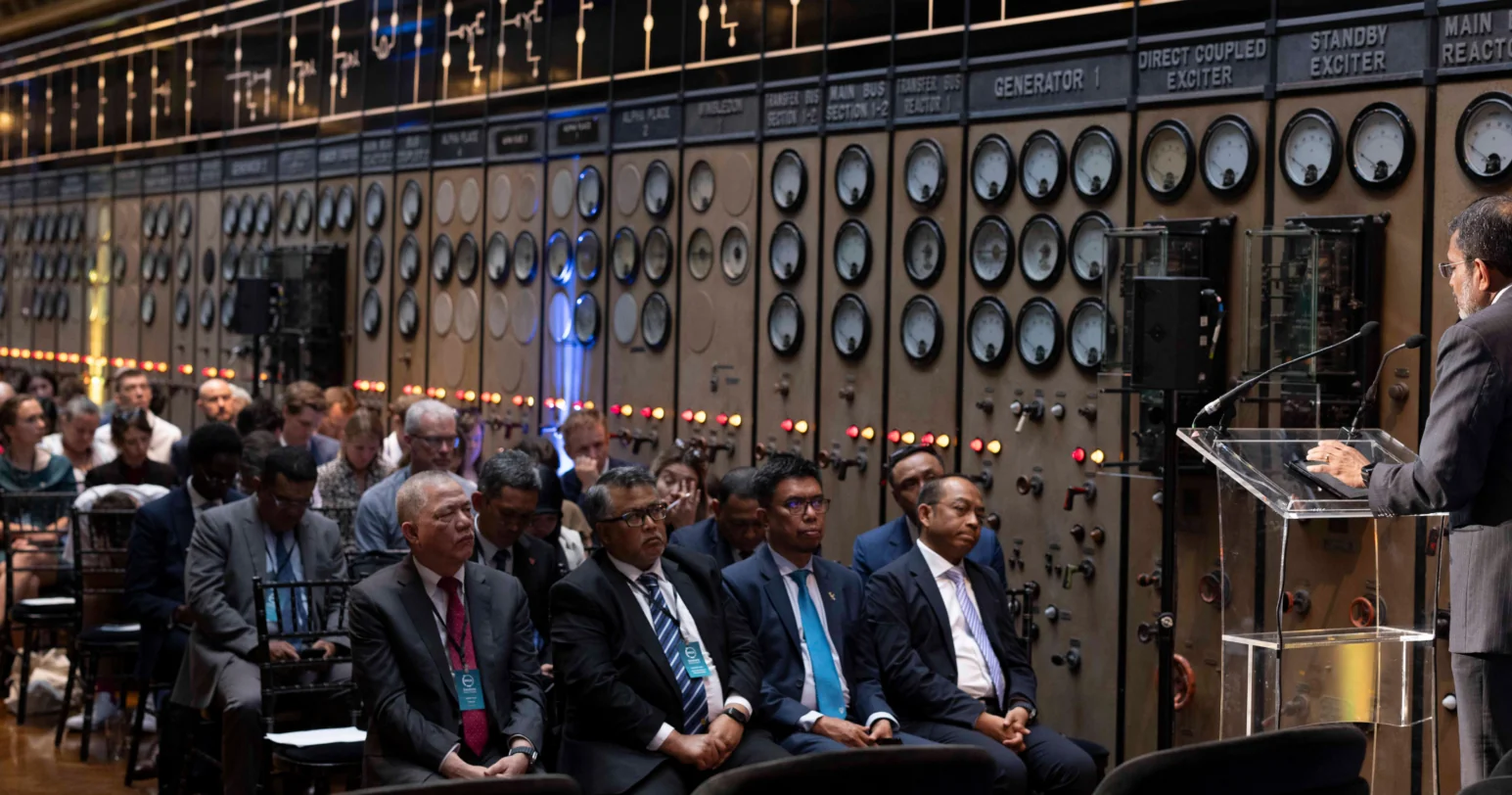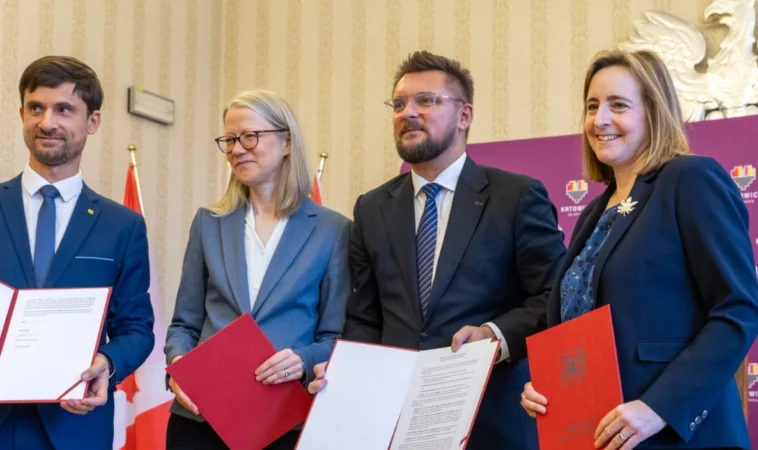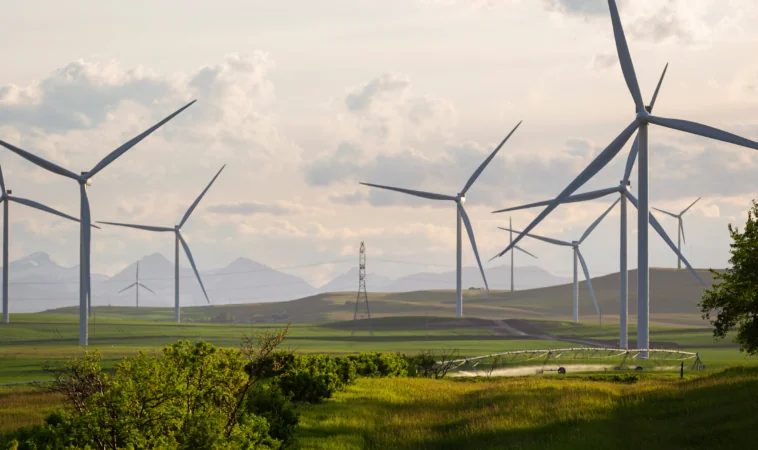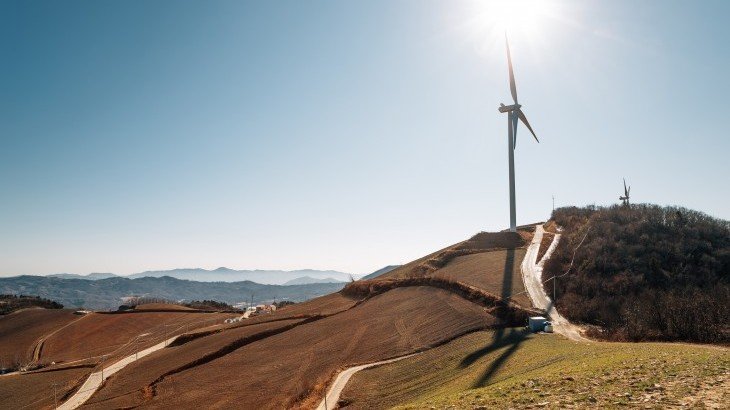
South Korea’s Gangwon Province and Daegu City joined the Powering Past Coal Alliance (PPCA) today, bringing PPCA membership in the country to seven subnational governments covering three quarters of coal power generation. Subnational leadership spurred Korean government’s recent pledge to end international coal finance and is now paving the way for an ambitious domestic coal phase-out commitment.
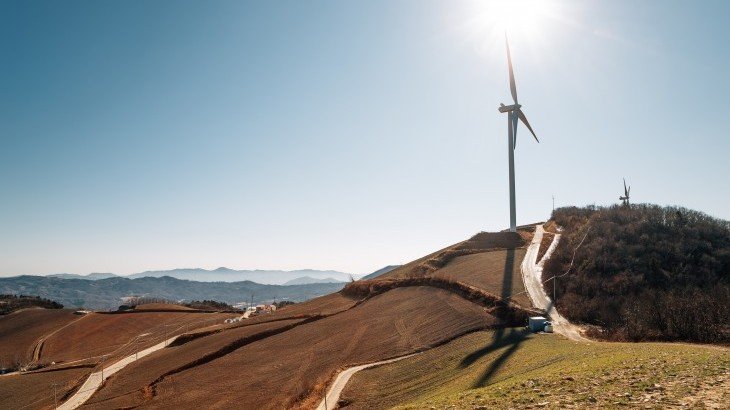
With three operating coal power plants, and four additional units under construction, Gangwon Province is one of South Korea’s coal power heartlands. Daegu is one of the country’s largest cities. Therefore, their membership in the PPCA will play a major role in facilitating the transition from coal to clean energy.
“We will actively participate in the phase out of coal-fired power plants in the province and endeavour to achieve carbon neutrality by 2040 by prohibiting the construction of new coal-related facilities”.
Choi Moon-soon, Governor of Gangwon
“By joining the PPCA, the City of Daegu will make great efforts to realize our coal-free policy, such as banning the construction of new coal power plants and phasing out coal power plants”.
Kwon Young-jin, Mayor of Daegu Metropolitan City
With the addition of Gangwon and Daegu, the PPCA now has seven Korean subnational government members, covering 75% of the country’s coal generation. In Korea, local governments do not have direct control over power plants that operate within their boundaries. However, PPCA members are determined to use all policy levers they have available, and advocate for faster coal phase-out plan at the national level.
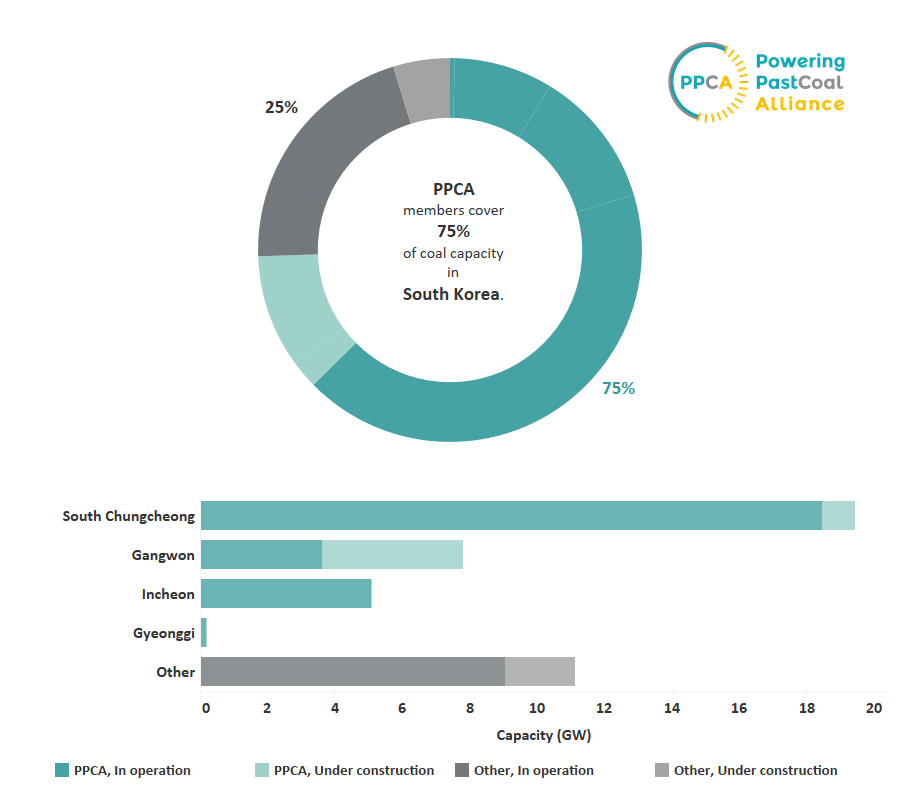
Provinces and cities drive Korea’s energy transition
In 2018, South Chungcheong Province, which hosts half of the country’s coal power fleet, was the first South Korean province to join the PPCA. Aiming to cut pollution and protect the health of its citizens, the province introduced strict air pollution standards for coal power plants within their boundaries. They also committed to bringing forward the closure of 14 units to 2026, ensuring support for affected workers and communities, and expanding renewable electricity generation from 7.7% to nearly 50% by 2050.
South Chungcheong has also been leading a push for greater action at the national level, and its participation in the PPCA helped increase its influence. In 2019, the province called on the Korean government not to retrofit aging coal power plants. The push succeeded in reducing their lifespan from up to 50 to 30 years and accelerated the closure of the oldest units.
On the back of Chungcheong’s success, in late 2020, the Alliance welcomed four other subnational government members in Korea: the country’s capital city, Seoul, Incheon Metropolitan City, and the provinces of Gyeonggi and Jeju. By joining the Alliance, they took on a greater leadership role in advocating for coal phase-out among government ministries, plant operators, other local governments and the finance sector.
They also have worked to advance alternatives for coal power, by increasing renewable power generation and lowering energy consumption, and continue to lead the way: the City of Seoul plans to install solar panels on 1 million homes by 2022, and the Province of Jeju aims to use 100% renewable electricity by 2030.
Landmark coal finance announcement prompted by subnational leadership
Efforts of Korean PPCA members have also been instrumental in reducing coal finance. In 2020, South Chungcheong led an initiative of 56 subnational administrations, including from Seoul, Incheon, Gyeonggi and Daegu, to add “coal phase-out” as a criterion for selecting banks to deposit their US$ 133 billion worth of annual funds.
Chungcheong’s divestment initiative diverted significant capital flows away from the coal power investments of certain Korean banks and helped shift the finance sector away from coal. Since then, four of the five largest Korean financial groups (KB, NH, Woori and Shinhan) have announced that they would no longer finance new coal projects. This spurred the Korean government to ban new public financial support for overseas coal-fired power investments in April this year.
A call for national ambition
The strong push to speed up the country’s transition from subnational governments clears the pathway for the central government’s exit from coal. In line with the most recent climate science, the OECD countries, including South Korea, must immediately stop construction of any new coal power plants and phase out coal power generation by 2030.
Phasing out coal would allow Korea to embrace a wide range of benefits, including cleaner air and improved public health. A recent report by the Centre for Research on Energy and Clean Air (CREA) estimated that severe air pollution caused by coal power plants would cause 16,000 premature deaths by the currently planned phase-out date of 2054.
PPCA members’ efforts are underpinned by the poor economics of coal. A new report co-authored by PPCA partner Carbon Tracker Initiative, as well as Chungnam National University in South Chungcheong and an NGO Solutions for Our Climate showed that most operating coal power plants in Korea will become unprofitable by between 2030 and 2035, and that coal phase-out by 2028 is the most cost-effective option.
PPCA members look forward to working together with South Korea in multilateral forums such as the P4G summit in Korea in late May and the G7 summit in June, to strengthen their efforts to move away from coal power generation in the lead up to COP26. An ambitious coal phase out commitment, in line with the pledge to reach carbon neutrality by 2050 and a strong 2030 climate target that should follow, would mean that Korea could become the first country in Asia to join the PPCA.
The work of PPCA members in Korea sets a great precedent for other Asian subnationals. They demonstrate that a transition away from coal is beneficial and feasible, and that the PPCA provides a platform which can help them achieve tangible results. Many cities and provinces in Asia want to do more to speed up the shift from coal to clean energy. In March 2021, the PPCA welcomed its first Japanese subnational – the City of Kyoto. It will certainly not be the last.
The article has been updated with statements from governors of South Chungcheong and Jeju Provinces.



